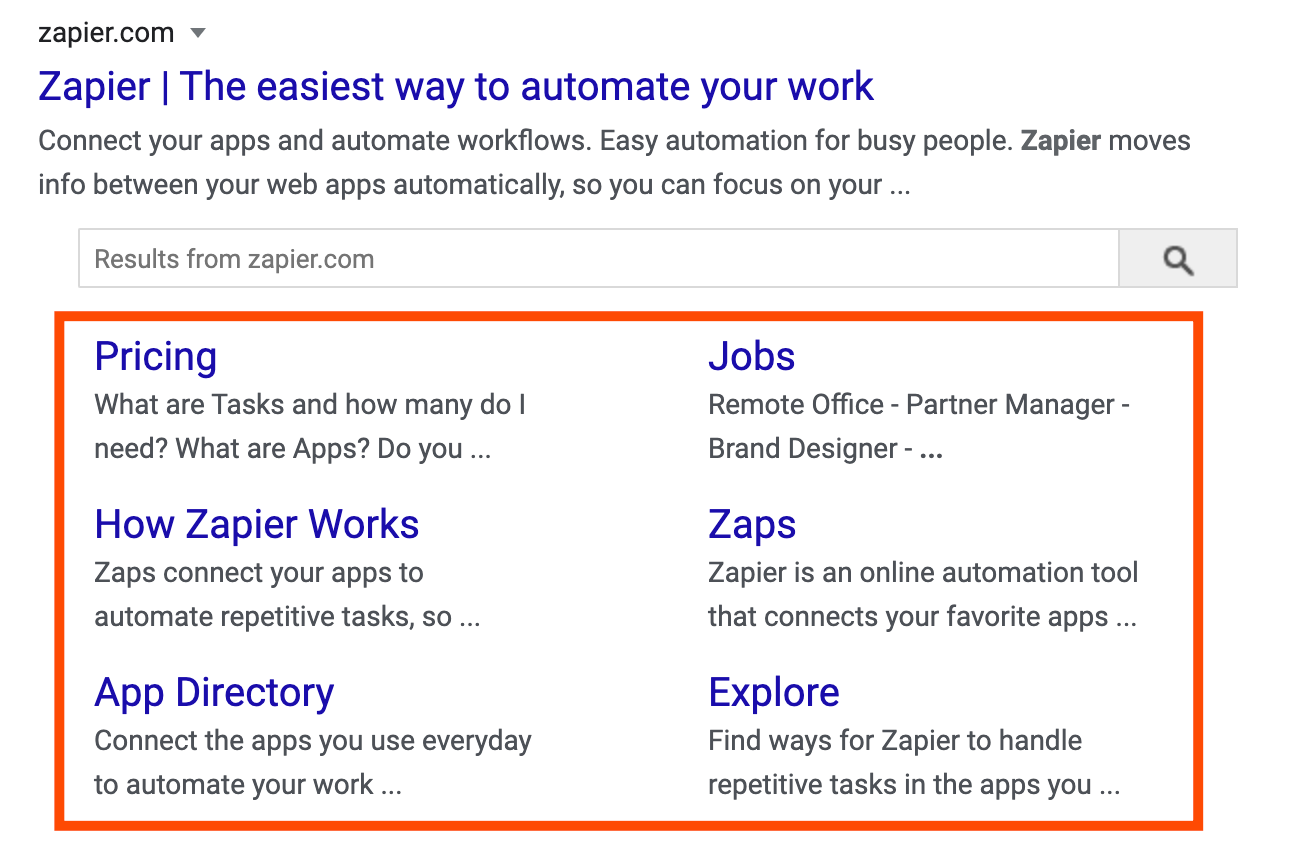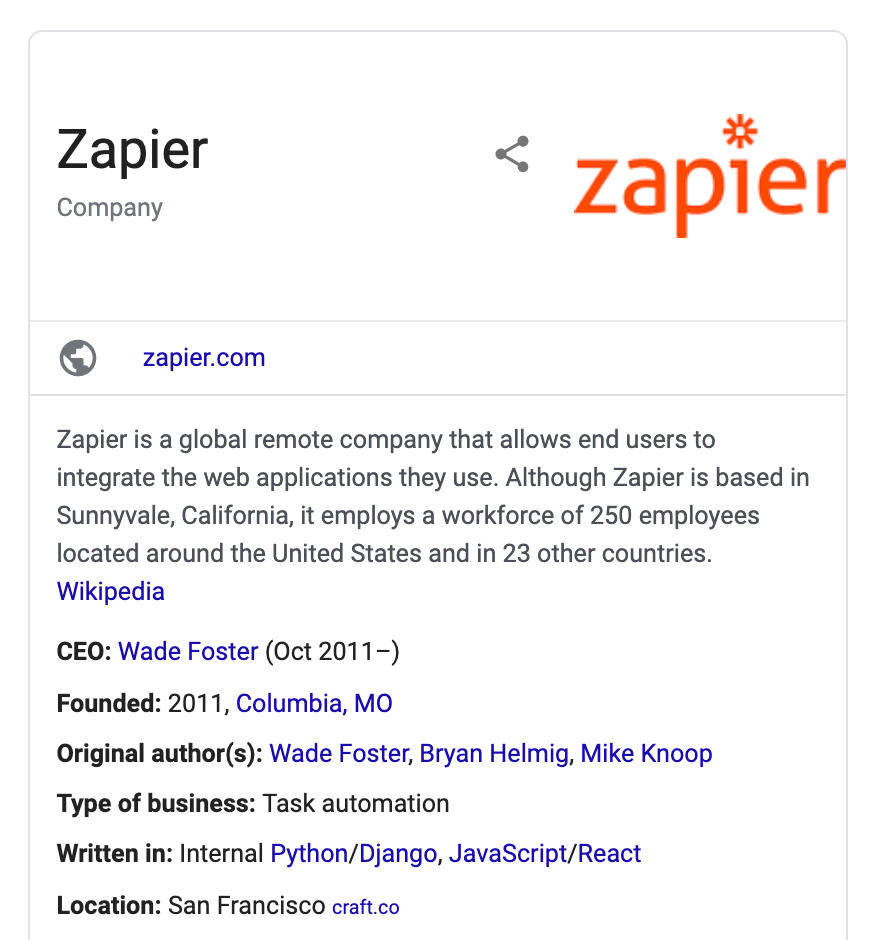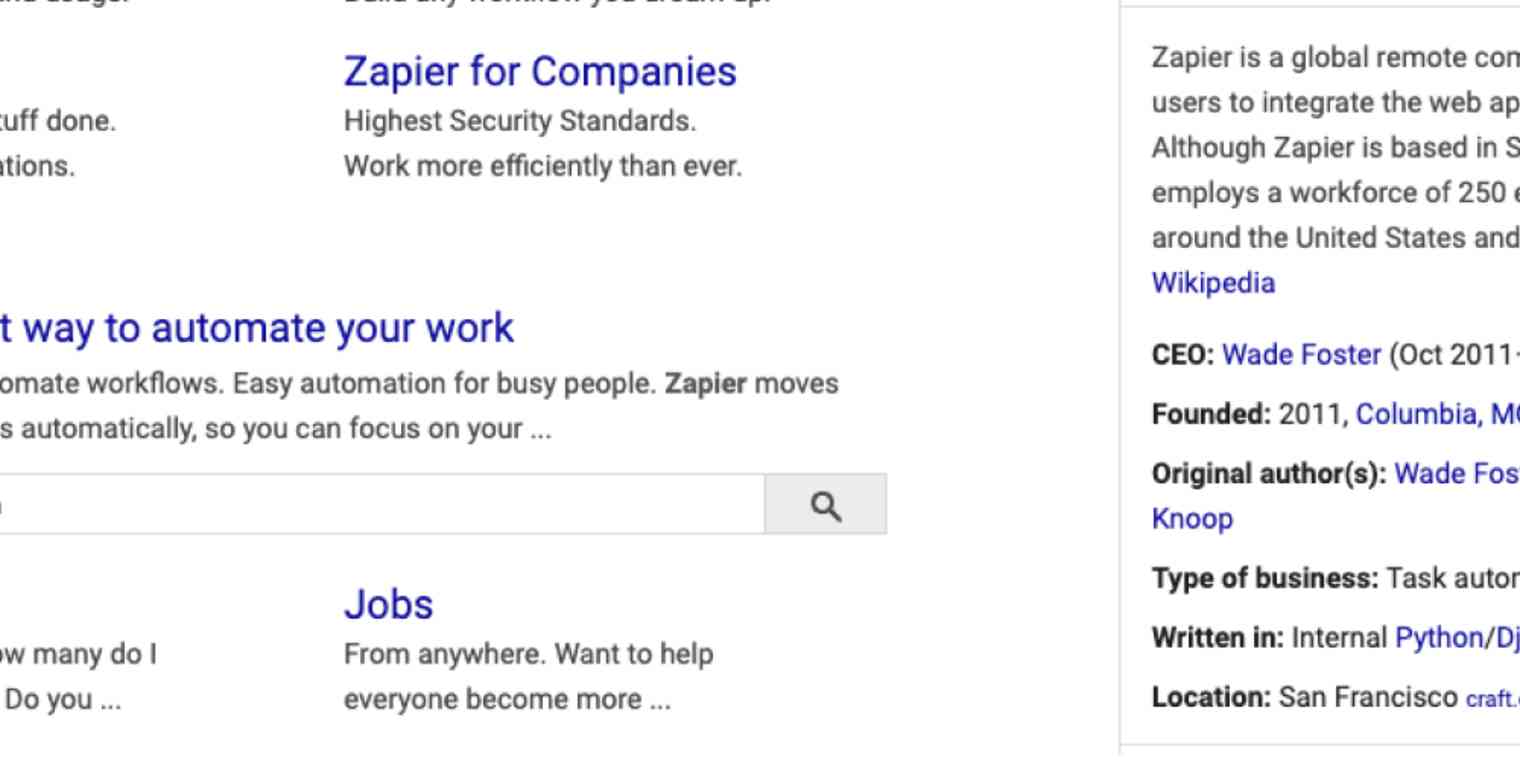SEO can feel like a time-suck for small business owners. But organic search is among the biggest, most effective, and most reliable client acquisition channels. Everyone Googles to find the best option, which means having the highest position on the search engine results page (SERP) is a natural marketing priority.
Here, I'll start by talking about the tools that can help you with SEO and then dig into how to optimize for rich results—those stand-out features on SERP that increase visibility.
Focus on the best free (and cheap) tools
The first step to a solid SEO game is strong content. I've written about how to create content matching search intent, so make sure you work on that before diving into the rest.
In order to optimize that content, you'll need SEO tools—and those can get quite costly. Some tools will run you up a bill of thousands of dollars a year, and that doesn't include the time you'll spend navigating the apps themselves. For small businesses, it makes sense to start with free tools and work your way up if you find they're working well for you.
Start with the search engines' own free SEO tools
Obvious first choice: the tools provided to you by the search engines themselves.
Combining the tools like Google's Keyword Planner and Trends with the site analytics of Search Console will help you identify and prevent many impending problems, as well as create a functional content plan. And it's all free.
Also, while Bing may not get as much search traffic as Google, it's a player in the search market, and optimizing for Bing is a topic unto itself. But for starters, their Webmaster tools include a free and accessible SEO dashboard. Using the Webmaster tools, you'll get a view of your inbound backlinks, research the keywords that bring people to your website, and find out your CTR level.
Especially combined with other SEO tools, these free options from Google and Bing can make a huge difference as you optimize.
Try professional-grade free and cheap tools
It's easy to assume that "free" never equals "good." But there's a whole host of tools that do their jobs well either for free or quite a bit cheaper than the rest.
My first suggestion is the set of tools I created: Link-Assistant.com. It handles all aspects of SEO, from keyword research and rank tracking to link building and competition research. We offer a free version, or you can upgrade to a professional version for $299/year.
You could also turn to Small SEO Tools. It's not as extensive, since they mostly source limited functionality from tools like SEMrush, but it's functional and free. Or, if you're specifically working through WordPress, try Yoast, easily the best-known SEO tool for WP, TYPO3, and Magento. Its free version works well for smaller businesses that don't need lots of bells and whistles.
Why use these instead of Google's or Bing's tools? With these professional-level tools, you can optimize for any search engine, track your rankings for any number of keywords, and not be obligated to participate in ad services like Google Ads, for example.
Boost your SERP presence with rich snippets
There's a lot to take care of when it comes to SEO. There are dozens of important ranking factors, from backlink diversity to intent matching, and implementing best practices isn't always simple.
But, for now, let's concentrate our optimization efforts on something quick, easy-ish, and mostly under your control: getting the rich snippets.
In today's SERP, especially for branded searches, only five or six results on the first page will be organic: the rest of the space will be occupied by the various Google features.
There are two sides to this coin: on the one hand, this cornucopia of elements cuts down on the organic search results, giving you less of a chance to break into the first page of search results. On the other hand, you get the chance to really stand out, which is something you simply couldn't get with a dull SERP.
This is where it's helpful to arm yourself with a tool to monitor the SERP features. Using it, you'll see the whole picture: what SERP features you have at the moment, which of your target searches have SERP features available that you don't currently claim, and more.
Here are the features you're going for and how you can try to get them.
How to get Google sitelinks
Rich sitelinks are the links under a main search result that look kind of like a table of contents. They work wonders because they offer fast access to different parts of your site and occupy a lot of the search results page (even pushing your competitors down).
Here's what they look like.

So how do you get rich sitelinks? All we know is that we don't know anything for sure. According to Google, there's nothing you can do to guarantee sitelinks. But there are best practices you can follow to at least not disqualify yourself:
1. Make your website more navigable. Site structure has always been important, but it's doubly so here. Create a navigation web where a user can get to the homepage from anywhere, and the homepage has clear and marked links to the biggest categories on your website. In many website audit tools, you can use the Visualization feature and scan specifically for "orphan" pages not connected to anything to create a logical site structure.
2. Upload your .xml sitemap to Google Search Console. Super easy, yet super important for Google to index your website wholesale. Go ahead and follow Google's instructions.
3. Structure your data. This takes a bit more time, but you can use my step-by-step guide to structured data. It boils down to going to schema.org and choosing the right schema for you, then implementing it on your page. For such a simple procedure, the benefits will be enormous.
How to get a Google knowledge panel
A knowledge panel is the box on the side of a SERP page with the basic information about a business—things like founder, location, type of business. Here's what it looks like.

Compared to every other search result a user sees (except for featured snippets, which are very difficult to get) it's the biggest, most eye-grabbing feature you can come across. It's basically a huge banner ad for you on Google.
There's no single button to click to get a knowledge panel, but you can find ways to feed the search engines the information about your business.
1. Verify your social media accounts. We all know that the companies that stay in business are the ones that build a community out of their customers. Managing your social media helps with that—and it helps create a network of associations that the search engines will mine when creating your knowledge panel.
As you build your social community, take a look at these 4 workflows to better manage your brand's social media.
2. Use Google My Business. We'll come back to this in more detail later in the article: this is the easiest way to feed the information about your company directly to Google.
3. Get a Wikipedia/Wikidata page. Not as easy as it once was, for sure, but still completely doable even for a smaller business. It's important because Wikipedia and Wikidata are the places that Google and other search engines mine for new data about entities all the time. While it's not the only data source nowadays (even sites like Reddit get sourced for knowledge panels sometimes), it's still one of the safest bets.
How to get a Google FAQ result
FAQ Markup is part of the already-mentioned schema markup, but it needs its own place in the sun. An FAQ rich result is just what it sounds like: a list of FAQs about your business answered right there on the search page. You can see what it looks like on Google's instructions page.
The benefits of an FAQ markup are threefold:
It occupies a lot of the SERP and pushes your competition down.
Your result gets to cover a whole "people also ask" box worth of informational queries.
It catches a searcher's attention and helps them immediately explore your offerings.
The easiest way to get this is to follow Google's own step-by-step guide. Do that, and you should see the beautiful FAQ markup within days.
Add your business to Google with Google My Business
If you're running a local business, it's kind of a different SEO game—for example, you need to track rankings locally. The biggest change, though, is that you can't do local SEO without setting up and managing your Google My Business (GMB) account.
To get yourself on Google My Business, go to Google's GMB page, fill out the form, and then verify your business. Verification comes in different forms, but the one available to most businesses is probably verification by mail: fill out your address and wait patiently for Google to get you a postcard with the secret code.
Once you're set up, GMB has a huge selection of features. For our purposes, the most important ones are:
Google Posts to let your potential clients know about special offers and news.
Services (Products) editor: describe what you're selling or offering, and users will be able to see it right on the results page.
Google Reviews. Google dominates the review game, which is why it's important to encourage your clients to share their opinions, and even more important to respond to their opinions in a professional and timely manner.
To be sure you don't miss any reviews, you can use Zapier to automatically notify you whenever you get a review or add all reviews to your database or to-do list.
Post new messages to a Slack channel with reviews in Google My Business
Create new rows in Google Sheets from Google My Business reviews
Create new Trello cards from Google My Business reviews
For more ideas, here are 4 ways to automatically gather and track customer reviews, no matter which app you're using. Once you've done that, get even more inspiration for using marketing automation to grow your business.
Rich snippets will make your business seem more trustworthy and help make you a search engine's best friend. Once you've optimized for rich results, make sure you complete an SEO audit to be sure there's nothing you're missing and nothing else that needs to be fixed.
This was a guest post from Aleh Barysevich, Founder and Chief Marketing Officer at companies behind SEO PowerSuite, professional software for full-cycle SEO campaigns, and Awario, a social media monitoring app. He is a seasoned SEO and social media expert and speaker at major industry conferences, including 2018's SMX London, BrightonSEO, and SMX East. Want to see your work on the Zapier blog? Check out our guidelines and get in touch.





